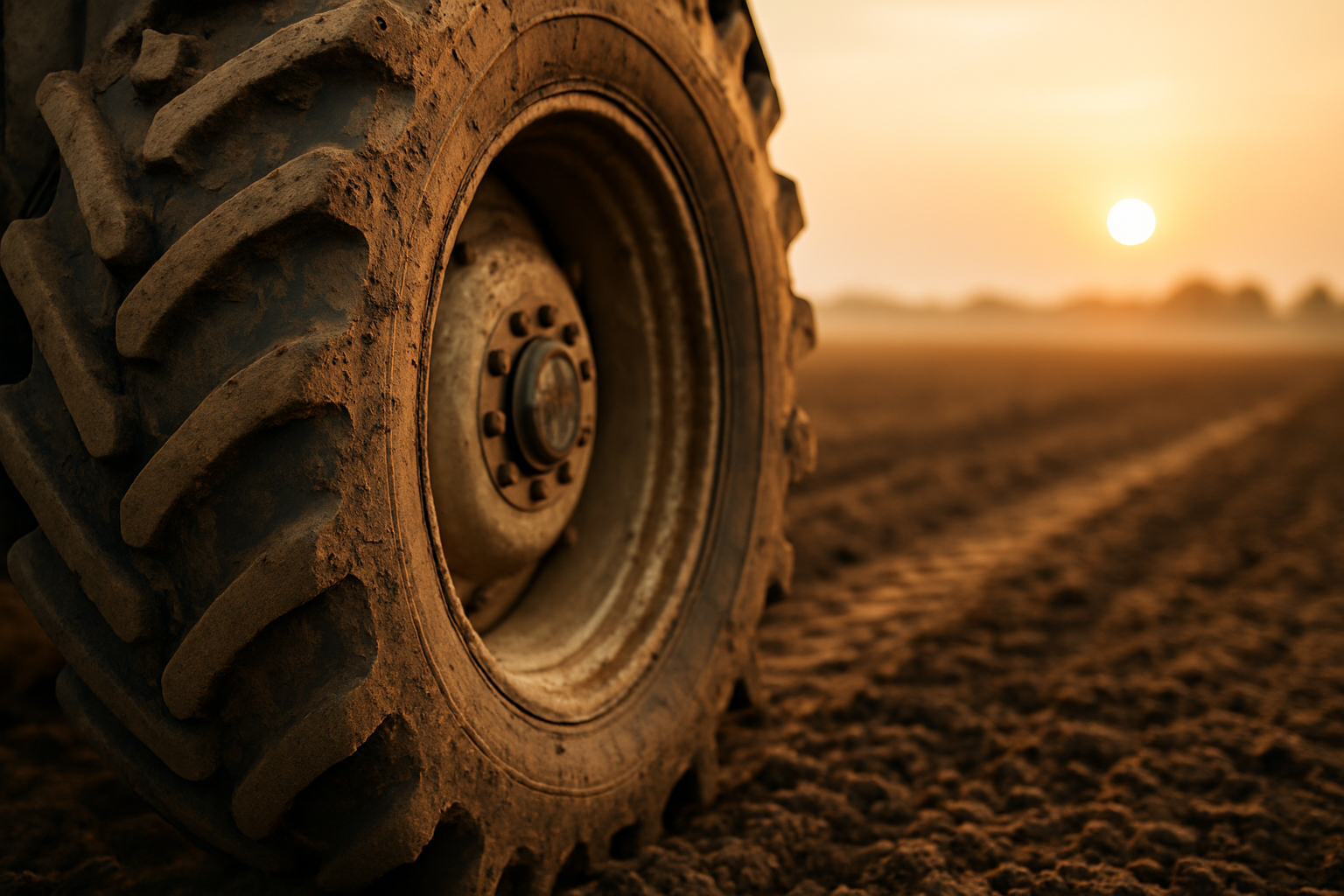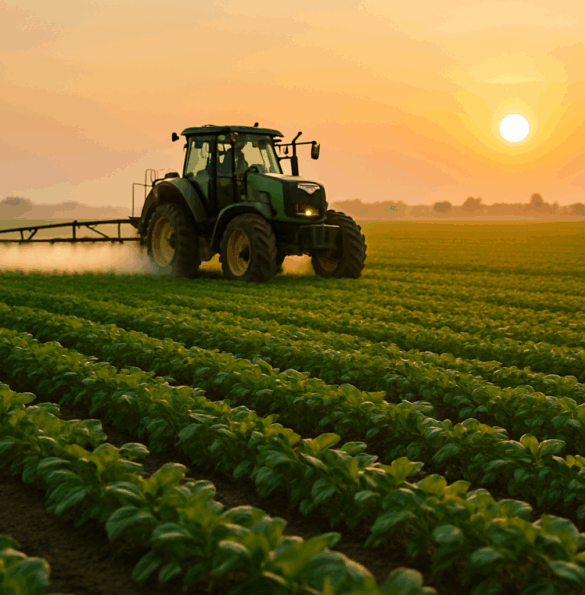Farm Equipment Insurance Protecting Against Unexpected Financial Losses

Keeping Your Farm Running with Equipment Insurance
Running a farm involves managing a variety of risks, and equipment breakdowns or accidents can lead to significant financial losses. Whether you operate a large commercial farm or a smaller family-owned operation, securing your farm’s machinery is essential to maintaining your productivity and livelihood. Farm equipment insurance provides vital protection for your machines, tools, and other essential equipment, ensuring that you can continue your work without worrying about the financial consequences of unforeseen events.
Farming is an unpredictable industry, with challenges arising from both internal and external factors. Equipment failure, accidents, theft, and damage caused by natural disasters can leave you facing high repair or replacement costs. Without the proper coverage, these unexpected expenses could severely impact your farm’s financial stability.
As President Dwight D. Eisenhower famously said, “Farming looks mighty easy when your plow is a pencil, and you’re a thousand miles from the cornfield” (Eisenhower, 1956). The reality is, farming comes with real risks, and having the right insurance can be the difference between a minor setback and a major financial crisis.
Farm equipment insurance helps mitigate these risks by covering the repair or replacement costs of your machinery and tools in the event of damage or loss. Whether it’s a tractor that breaks down during harvest season or a piece of equipment damaged by severe weather, having the right insurance can keep your farm running smoothly and protect your bottom line.
Farm equipment insurance typically provides coverage for both property damage and liability, two of the most important components for any agricultural operation. Here’s a breakdown of the main coverage types:
1. Property Damage Coverage
Property damage coverage is designed to repair or replace your farm equipment if it’s damaged by an unexpected event. Whether caused by accidents, weather-related issues, or vandalism, this coverage ensures that the financial burden of repairs doesn’t fall solely on you. For example, if a storm damages your tractor or combine harvester, property damage coverage will help cover the costs of repair or replacement.
2. Liability Coverage
Liability coverage protects you from claims made by third parties. If an accident involving your farm equipment leads to injury or property damage to someone else, liability insurance helps cover legal expenses, medical bills, and other associated costs. This coverage is especially important for farmers who interact with clients, contractors, or the public, as it safeguards your business and reputation in the event of a claim.
3. Property Protection
Agribusiness insurance also covers the buildings and structures on your property. This includes barns, silos, greenhouses, or any other buildings essential to your farming or ranching operations. Homeowners insurance generally doesn’t cover agricultural structures, leaving them vulnerable to damage from fires, storms, theft, or other incidents. Agribusiness property insurance ensures that your infrastructure is protected so that you can continue running your operations smoothly.
3.Additional Coverage Options
In addition to property and liability coverage, farm equipment insurance can be customized with additional protection options to address specific risks:
- Theft Protection: Coverage to reimburse you in case your equipment is stolen.
- Business Interruption Coverage: If your equipment is damaged and your farm cannot operate as usual, this coverage helps cover the loss of income until your equipment is repaired or replaced.
- Comprehensive Coverage: Combines property and liability protection to offer broader coverage against multiple risks.
Farm equipment insurance protects a wide range of agricultural machinery, from essential everyday tools to more specialized equipment. Here are some common types of equipment typically covered:
- Tractors are often the workhorse of a farm, used for a wide variety of tasks. Insurance for tractors typically covers damage caused by accidents or weather events. However, the type of coverage you need depends on how the tractor is used. For example, if your tractor is used only for personal purposes, it may be covered under a homeowners insurance policy. If it’s used for business activities, additional coverage may be required, such as inland marine insurance.
- Harvesting Equipment: Harvesting machinery, such as combine harvesters, plays a vital role in crop production. Farm equipment insurance helps protect against damage during operation or storage. Coverage can include protection from accidental damage or breakdowns that might occur during the busy harvest season.
- Specialized Farm Equipment: Farm operations often require specialized equipment, such as irrigation systems, livestock handling tools, or crop protection machinery. Insurance for specialized farm equipment ensures these tools are covered against damage or loss, providing the same level of protection as more common equipment like tractors and harvesters.
When purchasing farm equipment insurance, several factors can influence your coverage options and premium rates. Understanding these factors will help you make an informed decision and select the right plan for your farm.
- Type of Equipment: Different types of equipment come with varying levels of risk. Tractors, for example, may have a different level of coverage compared to specialized equipment like irrigation systems or harvesting machinery. The more valuable or complex the equipment, the more comprehensive the coverage you may need.
- Age and Condition of Equipment : Newer, well-maintained equipment typically costs less to insure than older, worn-out machinery. Insurers may offer higher premiums, or lower coverage limits for older equipment due to the increased risk of breakdowns or accidents. Regular maintenance and care can help keep premiums lower by reducing the likelihood of issues.
- Farm Location: The geographic location of your farm is another important consideration. Farms located in areas prone to extreme weather conditions, such as floods, hurricanes, or tornadoes, may have higher premiums due to the increased risk of damage. Similarly, farms situated in regions with higher crime rates may face higher premiums for theft coverage.
- Risk Exposure: Assessing the risks your farm faces is crucial when selecting the appropriate coverage. Factors such as terrain, weather patterns, and the type of crops or livestock you raise can all impact your exposure to risk. For example, farms that operate in areas with frequent storms or floods may need specialized coverage to protect against water damage.
While farm equipment insurance provides broad coverage, there are certain situations that may not be covered. It’s important to be aware of these exclusions to avoid surprises when you need to make a claim:
- Wear and Tear: Routine maintenance issues or damage caused by regular use are typically excluded from coverage. Insurance is designed to protect against unexpected, accidental damage, and not normal wear and tear.
- Intentional Damage: Any damage caused intentionally by you or someone else on your property is generally not covered under farm equipment insurance.
- Neglect or Improper Maintenance: If you fail to maintain your equipment properly or leave it in unsafe conditions, insurance may not cove the resulting damage. Regular maintenance and proper storage are essential to ensure that your equipment remains covered.
Choosing the Right Farm Equipment Insurance
Choosing the right farm equipment insurance requires a careful assessment of your needs and risks. Begin by evaluating the value of your equipment and identifying which items are most critical to your operations. Keep in mind that different types of machinery may require different coverage, and consider whether you need specialized protection for things like livestock handling or irrigation equipment.
Additionally, assess the risks your farm faces, including potential weather events, geographical location, and the age and condition of your equipment. By taking these factors into account, you can tailor your coverage to ensure that your farm and equipment are adequately protected.
Farm equipment insurance is an essential investment for any farm operation. It helps protect your valuable machinery from damage, theft, and unexpected events, while also covering liability risks that could impact your business. By securing the right coverage, you can focus on running your farm with confidence, knowing that your equipment and operations are protected.

Conclusion
In conclusion, farm equipment insurance is crucial for protecting your valuable machinery and ensuring the continuity of your farming operations. It covers risks such as damage, theft, and accidents, as well as liability claims, providing financial security when unexpected events occur. By choosing the right coverage based on your equipment’s type, condition, and farm location, you can safeguard against costly disruptions and maintain smooth operations. With proper insurance, you can focus on growing your business with confidence, knowing your farm’s essential equipment is protected.
What We Offer at
A to Z Insurance
Auto Insurance
Auto insurance doesn’t have to be complicated. Our experienced agents help you find the best coverage for your needs.
Home Insurance
Protect your largest asset with a customized homeowners policy tailored to your needs. Our agents guide you through your options to find the right coverage for your home.
Business Insurance
Your business deserves protection that fits its unique needs. We offer expertise and a wide range of coverage options to help safeguard your business.
